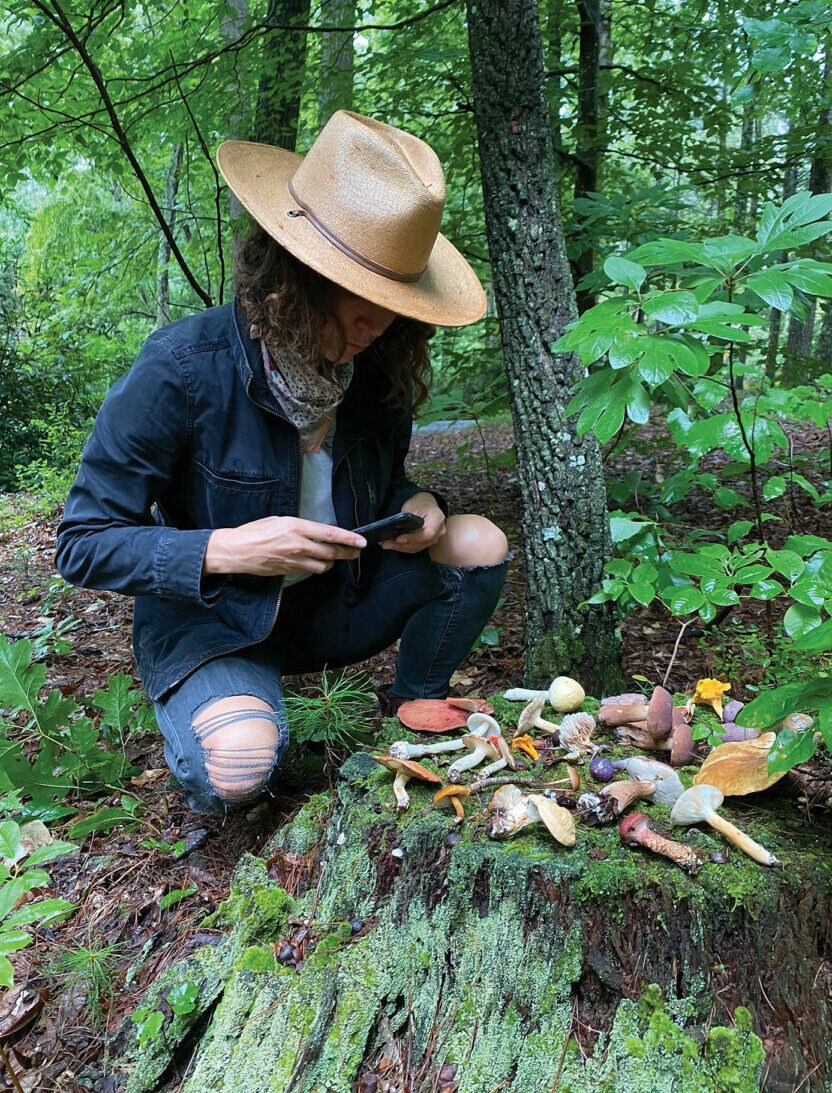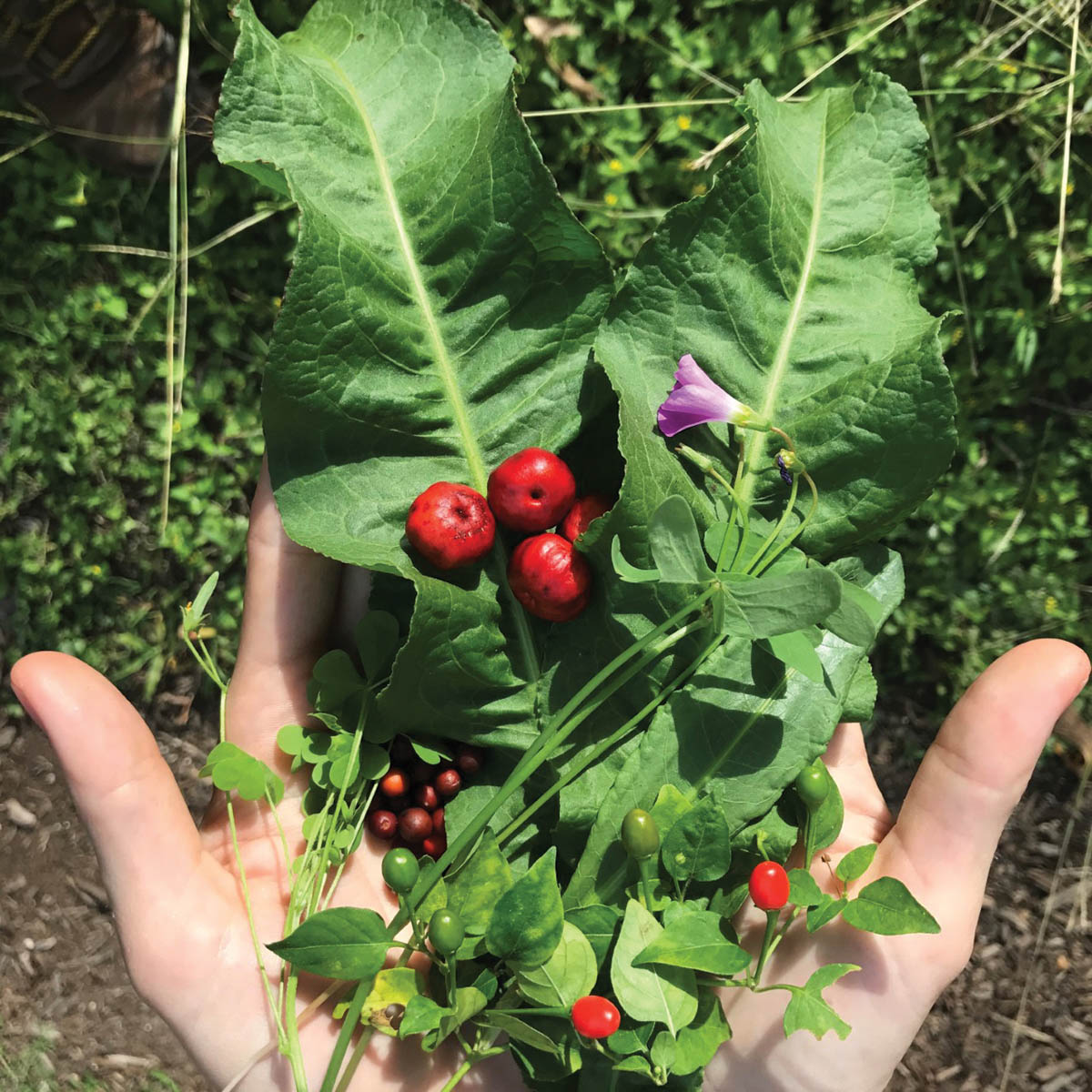Why Foraging is a Necessary Skill to Learn

We, humans, who were once dependent on manually gathering food from our environment now simply head to our local grocery store for sustenance.
Though agriculture has shifted the way we find food, it’s still possible to connect with your long-lost ancestors in seeking nutrition through foraging. Foraging can solve a food emergency, serve as a new learning opportunity, and ultimately help you connect with nature and understand what it provides.
Dave Scott, founder and executive director of Earth Native Wilderness School, helps people establish deep connections to the outdoors through hands-on learning and foraging.
“It feels empowering to be able to go out into nature and find something to eat and turn it into something that tastes good,” Scott says.
Especially in Austin, there are many naturally growing edible plants. Some of these include blackberries, dewberries, mulberries, huckleberries, hackberries, loquats, Mexican plums, Texas persimmons, wild garlic, nopal and yaupon.
Philip Speer, chef and restauranteur who forages recreationally, encourages foraging fungus variety mushrooms for their nutritional benefits.

Credit to Phillip Speer
“The lion’s mane mushrooms not only contain the most nutritional value of all the edible mushrooms, including the protein content and carb content,” Speer says. “It’s (also) a good nutrient for your cognitive health.”
Other nutrient-packed plants include mesquite pods, acorns, lambs quarter, mushrooms, nettle, pecans, cucumber plants and dandelion.
Foraging full-time is a challenging feat. Vitamins and fiber are easily accessible, but fat and protein are harder to come by. While foraging cannot provide for a family, it can provide nutritional value in small doses.
The tricky part is balancing between getting enough nutrients and honoring the already existing habitat. A good principle to go by as a forager is to not take more than 10%, and more so less, of what’s available in any area.
Trisha Bates, the founder of Urban American Farmer, says this is because we still want to respect the environment.
“A lot of plants have thrived and survived because they have a lot to offer humans and animals,” Bates says. “You don’t want to over-harvest because you could ruin the habitat.”
In order to have enough nutrition to sustain energy and live off foraging, you have to harvest and plan for storage. Eric Knight, an environmental engineer and consultant, wrote “Foraging for Texas” alongside his wife Stacey Copeland.
“It’s important to start small and don’t think (foraging will) provide all of your calories and nutrients,” Knight says.

Credit to Stacy Coplin
However, learning any new skill takes time, and foraging is no exception. Make sure to take advantage of foraging resources, as it’s vital to correctly identify plants. There’s always a risk of eating harmful plants as well as the possible contamination where food is growing naturally. Know how much to take, when to take it and how to ensure the plant continues to grow in the future.
“Start with learning (about) the invasive edible species first,” Knight says. “That’s just naturally better for the ecosystem and a good way to get people (to value) nature.”
It’s never too late or early to start learning. Scott’s kids have grown up learning about edible plants. When they were about 6 years old, they were able to find 12 to 13 edible medicinal or useful plants in their yard.
One of the best ways to start foraging is starting in the yard or at a park nearby. Great resources to use as a beginner are foraging field guidebooks like Knight’s “Foraging Texas” or “Foraging” by Vorderbruggen, the iNaturalist app, and foragers on social media. Ultimately, Speer says the key is to try it out yourself.
“There’s no better learning than getting your hands on stuff,” Speer says. “Finding an afternoon, driving to some remote area and walking around using the information you learned and applying it to real life.”
Whether you’re foraging in an energy situation for nutrition or simply learning a new skill, Bates says foraging ultimately helps you connect with nature.
“You start to realize how much nature has to offer,” Bates says. “There’s food everywhere you look if you know what to look for.”






